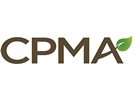Ron Lemaire, president, Canadian Produce Marketing Association and Dave Puglia, president & CEO, Western Growers, note that Canadian consumers are besieged by high food prices. Now the government is pushing to implement a plastics ban without considering the consequences.
Environment and Climate Change Canada (ECCC) is advocating for a near-elimination approach for plastic packaging that would require 75 percent of all produce sold in grocery stores to be sold in bulk or non-plastic packaging by 2026; this number will increase to 95 percent by 2028. Fresh fruits and vegetables represent only 2.9 percent of all plastic packaging in Canada. Yet, the near-total elimination of these essential packaging tools could cause dramatic food security and food affordability issues for Canadians.
Canadians benefit from a year-round supply of fresh fruit and vegetables despite a short domestic growing season. Imports represent the vast majority of produce sold to meet Canadian consumer demand and the majority of the products come from the United States. Western Growers’ farmers provide 2/3rds of the American fruits and vegetables available year-round to Canadians, and they know first-hand how difficult it is to get fresh nutritious foods from the fields of California to the dinner plates of urban and rural Canadians safely and in good condition. At this time, without plastics, it would be impossible.
 L-R: Ron Lemaire, Dave Puglia
L-R: Ron Lemaire, Dave Puglia
Why is that? Currently, there are no commercially available non-plastic packaging solutions for many types of produce. Innovations in plastic alternatives using fiber are years away from real-world usage. If the ECCC’s proposal goes into effect as written, beginning in 2026 there would be no bagged salads in Canadian grocery stores, a convenient and healthy staple for working families; no baby carrots for kids’ lunches, because the plastic bags used to transport baby carrots are made of a breathable plastic film that extends shelf life; no year-round berries, which cannot withstand the rigors of being shipped across the continent without being encased in plastic clamshells; and no bananas, a dietary staple for many Canadians on restricted income, because they are sent to Canada in a plastic bag which controls ripening during shipment. Overall, as supply dwindles, the diversity of produce options will diminish dramatically, and prices will inevitably rise. The impacts in rural and remote communities will be even greater.
Rather than the near-elimination of plastics, the ECCC and Prime Minister Justin Trudeau have been asked to take a collaborative approach with industry. This approach would focus on increasing recycled content and improving recycling systems to address the need for circularity while balancing the universal desire to reduce plastic pollution with the realities of the market.
 For more information:
For more information:
Micken Kokonya
Canadian Produce Marketing Association
Tel.: +1 (613) 226-4187 x225
[email protected]
https://cpma.ca/
